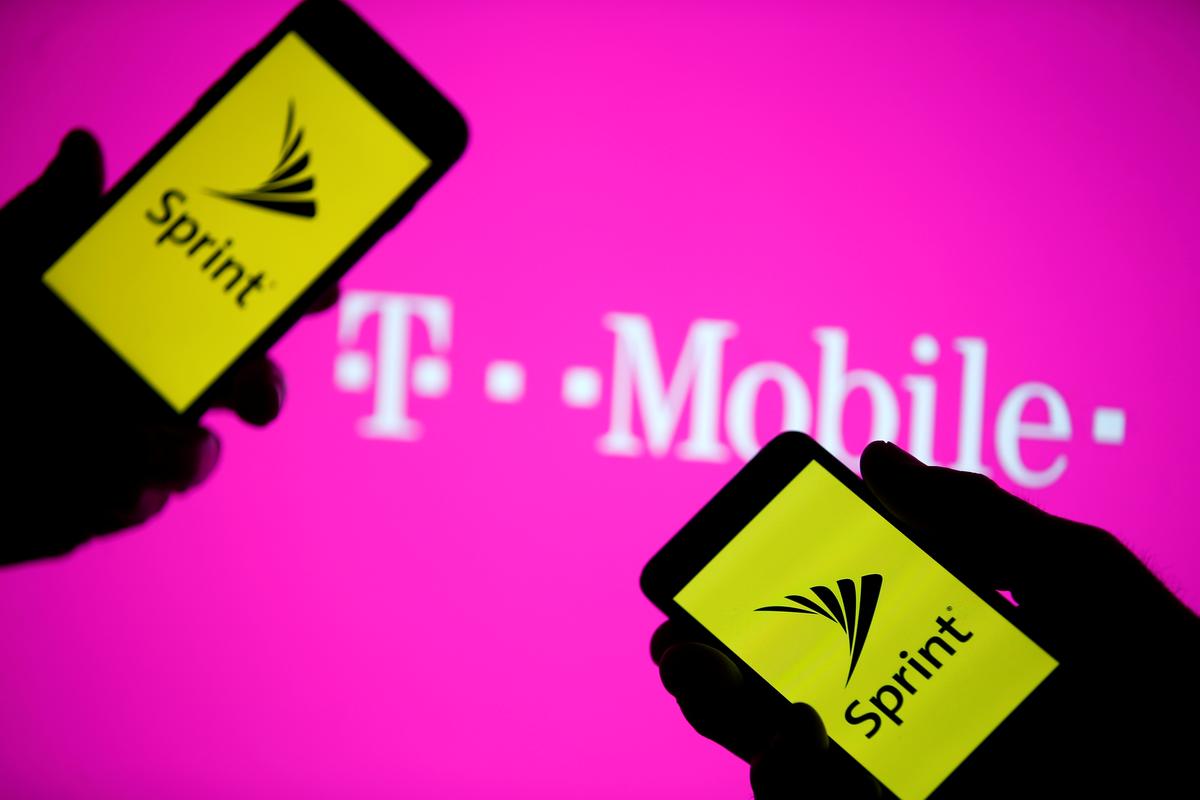NEW YORK (Reuters) – A federal judge on Tuesday approved wireless carrier T-Mobile US Inc’s takeover of Sprint Corp, rejecting a claim by a group of states that said the deal would violate antitrust laws and raise prices.
During a two-week trial in December, T-Mobile and Sprint argued the merger will better equip the new company to compete with top players Verizon Communications Inc and AT&T Inc, creating a more efficient company with low prices and faster internet speeds.
Shares of T-Mobile rose 10% to $93.01 while Sprint soared more than 72% to $8.27 in early trading. Even after a deal closes, the combined company would only be third-largest U.S. wireless carrier by market capitalization.
The states, led by California and New York, had said the deal would reduce competition, leading to higher prices.
The decision by U.S. District Court Judge Victor Marrero clears the path for the deal, which already has federal approval and was originally valued at $26 billion.
In his ruling, the judge noted the difficulty in deciding an antitrust case since it forces the judge to predict the future in deciding if a deal will lead to higher prices.
But Judge Marrero said that he based his decision on three essential points. The first was that he was not persuaded by the states that the deal would lead to higher prices or lower quality wireless services.
He disagreed that Sprint would remain a strong competitor and was unconvinced that DISH, who is buying divested assets from the deal, would fail to live up to its promises to enter and compete in the wireless market.
Related Coverage
- NY attorney general considers appealing ruling OK'ing Sprint T-Mobile merger
- U.S. federal judge allows merger between T-Mobile and Sprint
“The court concludes that the proposed merger is not reasonably likely to substantially lessen competition,” he wrote.
New York’s attorney general said the state is considering an appeal; California’s attorney general said that state is “prepared to fight.”
The judge’s decision to let the deal proceed drew criticism from some antitrust experts.
“If this merger is not anticompetitive, even with the remedies agreed to, it is hard to know what is,” Eleanor Fox, trade regulation and antitrust law professor at New York University.
State enforcement is critically important for competition and consumers under an administration where federal enforcers allow harmful mergers to proceed, said Diana Moss, president of the pro-enforcement American Antitrust Institute.
Sprint and T-Mobile said in a statement they would move to finalize the merger, which is still subject to certain closing conditions and possible court proceedings.
The U.S. Justice Department approved the deal in July after the carriers agreed to sell some prepaid assets to satellite provider Dish Network Corp, which would create its own cellular network to ensure that there would still be four competitors in the market. The Federal Communications Commission signed off on the deal in October.
The states maintained that Dish was ill-equipped to become a competitive fourth wireless carrier, noting that it lacks experience, scale and brand recognition in wireless.
Uniting T-Mobile’s low-band spectrum and Sprint’s mid-band spectrum could allow a fast rollout of a national 5G network. Japan’s Softbank Group Corp is Sprint’s controlling shareholder.
Federal Communications Commission Chairman Ajit Pai said the ruling was a big win for American consumers and would help ensure U.S. leadership in rolling out a 5G network. The FCC approved the deal last year in a vote split 3-2 along party lines.
Source: Read Full Article
